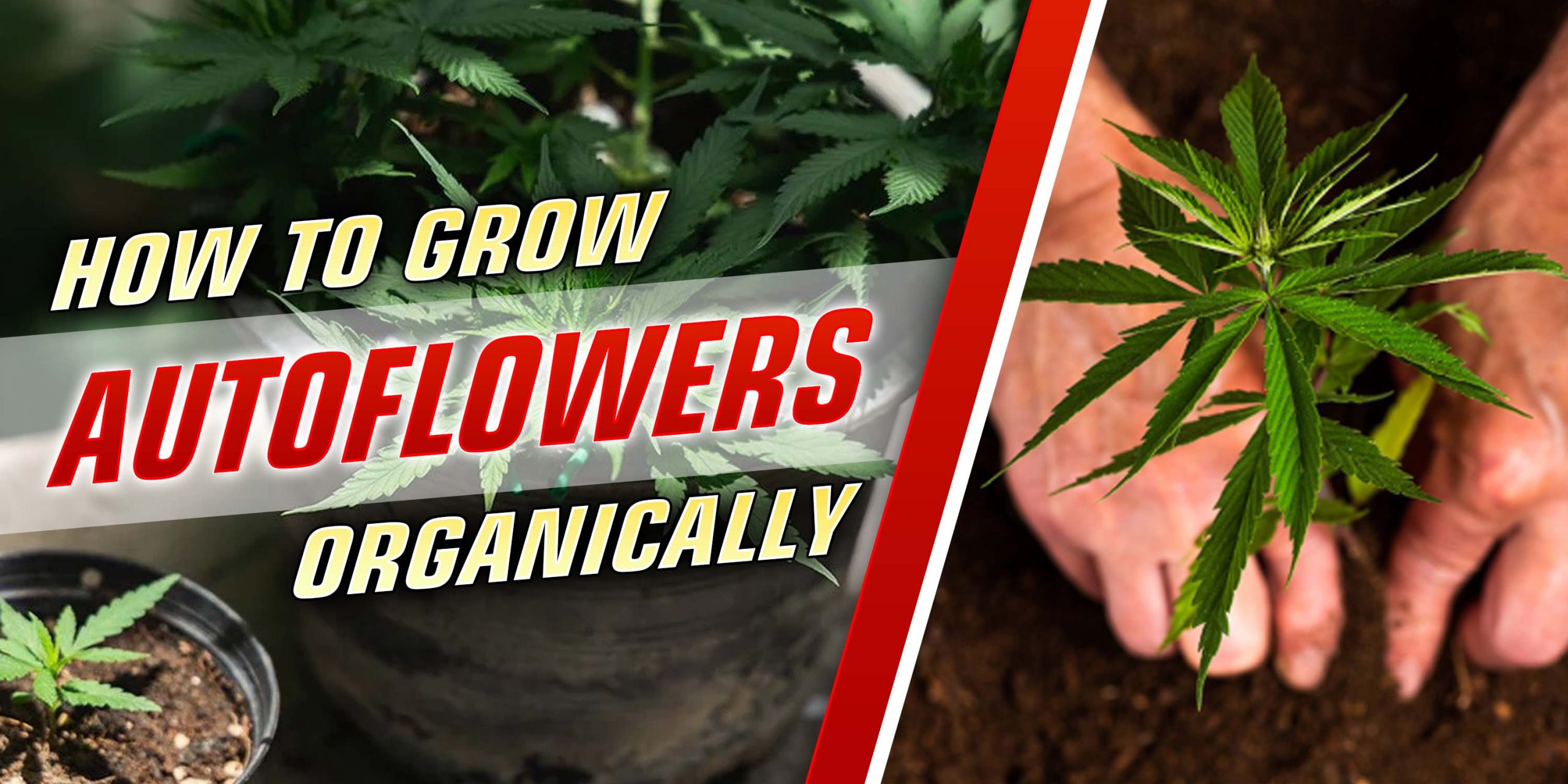


Table of Contents
ToggleOrganic cultivation revolves around the use of natural materials and processes to nourish plants while promoting soil health and biodiversity. Unlike synthetic fertilizers, organic nutrients for autoflowers are released slowly, providing a steady supply of essential elements without the risk of nutrient burn. By harnessing the power of soil microbes and organic matter, growers can create an ecosystem that supports robust plant growth and enhances the flavor and aroma of the final product.
The foundation of successful organic cultivation is the soil. Mimicking the rich, fertile soils found in nature, organic growers utilize compost, coco peat, perlite, and other organic amendments to create a nutrient-rich growing medium. These materials not only provide essential nutrients but also improve soil structure, water retention, and drainage, ensuring optimal conditions for plant growth.
Recipe for Organic Super Soil for Autoflowers
Creating a super soil blend requires a careful balance of organic components to provide plants with everything they need to thrive. Here’s a basic recipe for crafting your super soil mix:
While not all ingredients may be readily available, a basic mix containing compost, coco peat, perlite, and aged manure will suffice for most growers.
Once your soil is prepared, it’s time to germinate your autoflower seeds and nurture them through the delicate seedling stage. Whether using damp paper towels or planting directly into the soil, maintaining consistent moisture and providing gentle light is crucial for successful germination. As seedlings emerge, care must be taken to avoid overfeeding and ensure proper root development.
pH Considerations
Organic growers benefit from the natural buffering capacity of organic soils, reducing the need for pH adjustment. However, monitoring pH levels can still be beneficial, especially when using tap water with fluctuating pH levels. Adjustments can be made using natural substances such as white vinegar or baking soda, avoiding the use of synthetic pH adjusters.
During the vegetative stage, auto flowers require ample nitrogen for lush foliage development. Organic fertilizers, such as fermented plant juice (FPJ), provide a balanced source of nutrients while promoting soil health and microbial activity. By focusing on organic inputs, growers can avoid nutrient imbalances and promote robust vegetative growth without the risk of chemical buildup.
Fermented Plant Juice (FPJ)
FPJ, derived from fast-growing plant material and sugar, is a nutrient-rich fertilizer that supports vigorous vegetative growth. By harnessing the power of natural enzymes and microbes, FPJ provides a complete source of nutrition while enhancing soil fertility and microbial diversity. Incorporating FPJ into your organic regimen promotes sustainable, eco-friendly cultivation practices while maximizing plant health and vitality.
As autoflowers transition into the flowering stage, their nutritional needs shift towards phosphorus and potassium for bud development. Organic fertilizers, such as fermented fruit juice (FFJ), supply these essential nutrients while enhancing flavor and aroma. By utilizing natural ingredients and fermentation processes, growers can achieve impressive yields of high-quality, organically-grown cannabis.
Fermented Fruit Juice (FFJ)
FFJ, made from phosphorus and potassium-rich fruits, provides a potent source of nutrients for flowering plants. By fermenting fruit scraps with sugar, growers can create a nutrient-dense fertilizer that promotes robust bud development while enhancing terpene production and flavor complexity. Incorporating FFJ into your organic regimen ensures that your plants receive the essential nutrients they need to thrive through the flowering stage.
In addition to organic fertilizers, soil amendments such as compost teas can further enrich the growing medium and promote soil health. These natural supplements provide a diverse array of nutrients and beneficial microorganisms, enhancing plant vigor and resilience while reducing the need for synthetic inputs.
Growing auto flowers organically offers numerous benefits, including enhanced flavor, aroma, and overall plant health. By embracing organic cultivation methods and utilizing natural fertilizers and soil amendments, growers can produce high-quality cannabis while minimizing environmental impact. Whether you’re a seasoned gardener or a novice enthusiast, cultivating organic auto flowers is a rewarding and sustainable way to enjoy the pleasures of homegrown cannabis.
Q: Can I grow auto flowers organically indoors?
A: Yes, you can grow auto flowers organically indoors using organic soil mixes and natural fertilizers.
Q: Do I need special equipment to grow autoflowers organically?
A: No, you don’t need special equipment. Basic gardening tools and organic materials like compost, coco peat, and perlite are sufficient.
Q: Will organic auto flowers have a different taste compared to those grown with synthetic fertilizers?
A: Yes, organic auto flowers tend to have a richer flavor and aroma due to the natural nutrients and soil microbes present in organic cultivation.
Q: Is organic cultivation more expensive than using synthetic fertilizers?
A: It can be initially more expensive to set up organic cultivation, but over time, organic methods can be cost-effective as they promote soil health and reduce the need for expensive synthetic inputs.
Q: Can I switch from synthetic to organic cultivation during the growing cycle?
A: Yes, you can transition from synthetic to organic cultivation, but it’s essential to gradually introduce organic fertilizers to avoid shocking the plants.


Best Selling
Feminized Seeds
Regular Seeds
Customer Help
WE SELL MARIJUANA SEEDS IN THE USA

Are You 18 Or Over?
YesOr
No By clicking yes, you certify that you are over 18. By using this website, you agree to our legal disclaimer.